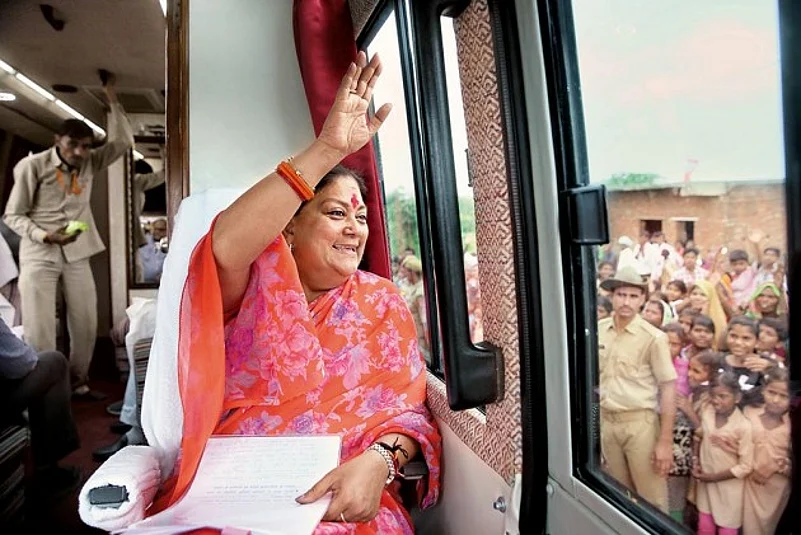With just a few hours remaining for the results of the assembly elections held in five states, including Rajasthan, the fates of many hang in air.
In the desert state, it has been a bipolar contest between the BJP and the Congress for the past 25 years and this time around, too, it was no different. The most probable outcome, if the various exit polls are to be believed, seems to be the Congress riding to a comfortable victory (suggesting anywhere between 101 and 141 seats out of 200). The Congress win, despite throwing up a difficult choice between Ashok Gehlot and Sachin Pilot for the Congress leadership, might also write Vasundhara Raje’s political obituary.
But a look back at the work done by the parties in the past five years seems to suggest that while Congress did little in the run-up to the elections, the BJP did little right. The Congress’s campaign seemed to be more of an understated one, relying more on the anti-incumbency sentiment among the electorate, and mostly trying to avoid falling into the Ali-Bajrang Bali binary trap set by the BJP. Moreover, the haze over CM face in Rajasthan from Congress also seems to have withheld both Pilot and Gehlot from going all guns blazing into the campaign. If the Congress wins, the lack of aggression in its campaign might seem only strategic as it chose to be a silent beneficiary of voters’ resentment against the BJP rather than become a prominent and test the effectiveness of Modi’s 60-year-misrule refrain.
On the other hand, the BJP seems to have got it wrong on multiple fronts. The encounter of Rajput gangster Anandpal, the handling of controversy around film Padmavat, not appointing GS Shekhawat as state BJP chief, and Jaswant Singh’s son Manvendra Singh quitting the party to join Congress, all these have alienated, if not all, a considerable section of Rajputs, who have always been BJP loyalists. Furthermore, the restoring of SC/ST Act by the Parliament after the Supreme Court struck down a couple of its sections has upset the Brahmins and other castes. A Sanskrit professor from Jaipur remarked that out of roughly 50 people in his extended family, who normally voted for BJP, 10 went for the NOTA this time, miffed with the BJP’s ‘Dalit appeasement’.
If these were not enough, Yogi Adityanath’s remark that Lord Hanuman was a Dalit, has angered other castes even more. A Brahmin outfit from Rajasthan even sent the UP Chief Minister a legal notice for his remark. But the question remains if the disenchanted BJP voter will turn towards Congress or make peace with other options. Some say that the BJP tried very hard to polarize the elections in the state but failed to, and even the trio of Modi-Shah-Yogi could not give it the much-needed spin. Modi has brought up the Ram Mandir issue in his speeches, Shah has expressed zero tolerance for illegal immigrants, and Yogi has made the infamous Ali-Bajrang Bali remark. But for some reason, the elections did not turn into a divisive exercise as the BJP would have wanted it to.
The state has had a largely amicable equation between the Hindus and the Muslims. At the Sufi shrine in Ajmer, there are many Hindus who line up to pray along with the Muslims on any given day. And the relatively low share of Muslim population (9%), when compared to states such as UP where they account for 19% of the population, has never really made the Muslims look like an ‘adversarial’ force to reckon with. The election results however are likely to bust most theories and surprise us. And who knows, however little, the BJP might have done just enough to pull off this time.


























